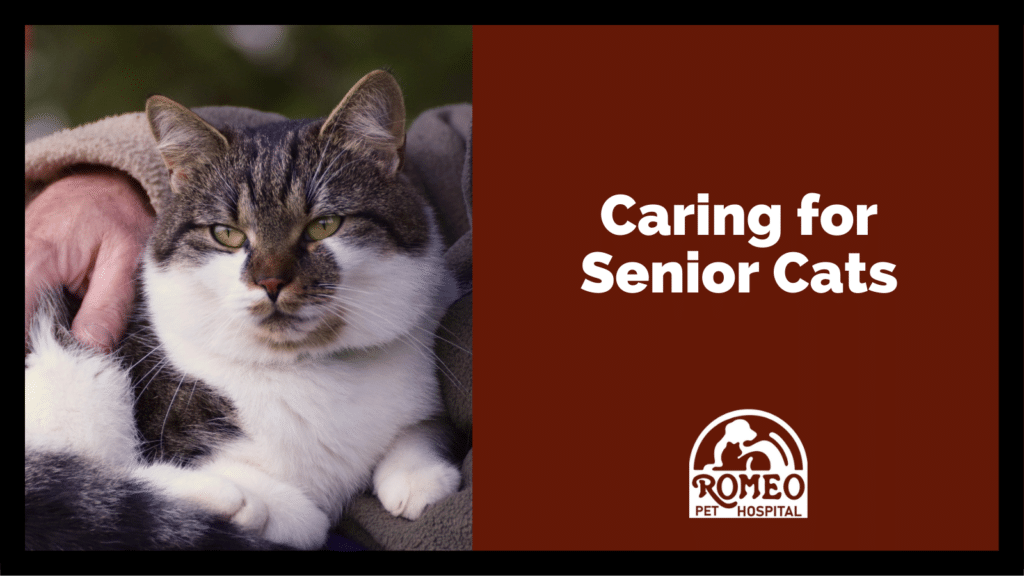
Pets are playful, affectionate, and just plain adorable. But there comes the point when cats start to slow down – this is known as the “senior” stage of life. Senior cats require special care, but it’s easy to provide them with what they need if you’re aware of their needs.
If it’s the first time you’re looking after a senior cat, chances are you’re not fully aware of the problems they can experience. Remember that looking after an aged cat is a big responsibility. Still, it can be done successfully with some patience and understanding.
When to Consider Your Cat a Senior?
Here are some common signs your cat might have transitioned to the senior stage:
● Their paws start to become stiff and brittle. Also, they don’t sharpen their claws often
● They find it harder to jump to higher places due to their age and weight gain. They sometimes fail to go to their litter box too
● Their motility declines, and they seem lazy, usually less playful than they were as a kitten
● Although they gain weight, they may encounter a loss of appetite too
● A slight change in sound and excessive vocalizations
● Runny or cloudy eyes and vision problems
But remember that not all of these signs might point to ageing in cats. Who knows, your cat might be experiencing general health problems. It is always a good idea to take your cat to a vet clinic in Stratford for pet diagnostics.
Tips to Care for Senior Cats
After you’re sure your pet is a senior, you can use the following tips to ensure she receives the best car at her stage in life.
Balanced Diet
Senior cats need special nutrition. Remember that senior cats mostly experience a drop in their nutritional levels. They may not get everything they need through their routine food. But there are many diet options available for senior pets, specifically. It is good to take your old cat to a veterinarian who can recommend a diet after assessing its overall health, behaviour, activity level, and age.
Health Examinations
An adult cat needs a veterinary examination more often than a kitty. Make sure to take your senior cat to a vet clinic for health examinations every 3 to 6 months. This helps diagnose any health problems in the early stages and before they become serious. Also, senior cats are prone to become sick more often, and visits to a vet clinic can help prevent them from becoming sick.
You might also want to consider a Pet Wellness Plan in Stratford to ensure the best care for your little friend. Remember that the disease in senior cats could not only be caused by malnutrition but overeating too. The issues associated with obesity can be treated and prevented with timely visits to a pet hospital.
Oral Health
Senior cats are also more at risk of developing dental problems. Tooth decay and dental disease can affect their overall wellbeing and behaviour. That is why pet dental care is as critical as general health care. Issues like broken teeth, holes in the teeth, tumour or cancer in the mouth and gum are more common among senior cats. Also, dental infections can quickly enter the bloodstream and damage your cat’s organs if not diagnosed and treated timely.
Make Your Home Senior Pet Friendly
Creating space, especially vertical spaces, in your home is so essential to let your senior cats roam around freely. Cat trees or shelves are an excellent way to give them room to climb. Also, they should be given a hiding area to go to when they want to. It must be a quiet place where they can rest without any noise or disturbance.
Multiple food and water sources, litter boxes, and bedding options can make life much easier for your senior pet. It would give them a chance to avoid going to unpleasant environments (strong smell, noise, many people, etc.) for their basic needs. Instead, they could switch to another peaceful area to have access to anything they need.
Exercise and Mental Stimulation
Senior cats need more exercise, mental stimulation, and softer surfaces to lay. Exercise is great for their muscles and joints because it helps n loosen up stiff muscles. The best way to ensure your cat gets enough exercise and mental stimulation is by playing with them!
Playing games like fetch or hide-and-seek will give your cat the necessary exercise they require while also giving them some mental stimulation! You can also buy toys made explicitly for exercising – these usually come in the form of puzzle feeders where food goes inside the toy, so it takes work to get it out (it’s like doing puzzles!).
Vet Clinic in Stratford
If your pet has entered the senior stage of its life, give our vet clinic in Stratford a call today. We can ensure no severe health problems are present and create a plan to help your furry friend transition into their golden years.



